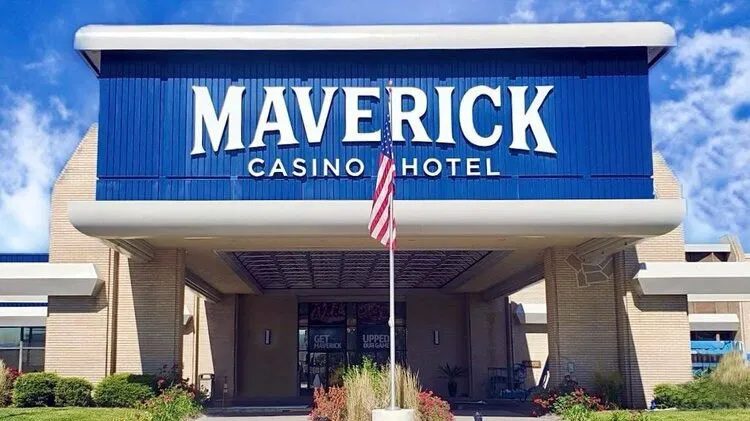
Many folks strongly believe the legal betting industry is fake. That you can just build a casino or sports betting app, and customers line up in droves to gamble away their hard-earned money.
Spoiler alert: it’s not that easy. This is why many casinos close up shop. Sure, the betting odds might be in their favor, but not even that is enough to save their business fortunes.
Just ask Maverick Gaming. This casino operator is in the process of going bankrupt. The company filed for Chapter 11 protection in Texas this week, listing between $100 million and $500 million in assets and liabilities.
Why do we bring them up here? Because Maverick had ties to Washington betting — and it’s where their struggles mostly stem from. As part of the bankruptcy, they are closing down four casinos in the state: Dragon Tiger Casino in Mountlake Terrace, Palace Casino in Lakewood, Silver Dollar in Renton, and Roman Casino in Seattle.
The move comes less than a year after Maverick restructured its debt to buy more time with lenders. That deal gave them fresh cash, a two-year extension, and even allowed “payment-in-kind” interest for a stretch, meaning they could pay lenders with more debt instead of cash. But that grace period ended earlier this year. With cash interest payments due and operating costs still high, the company’s “hand was forced”, hence the bankruptcy decision.
The saga ends a long-standing feud with the state of Washington. In case you forgot, here’s how we got here in the first place:
Years of Bad Blood with the State
Maverick’s bankruptcy didn’t happen in a vacuum. The company has been butting heads with Washington regulators and lawmakers for years over what CEO Eric Persson calls an uneven playing field. Under state law, only Native American tribes can offer sports betting and physical casinos must be located on tribal land. Card rooms like Maverick’s can offer poker and certain table games, but that’s where their privileges end.
Persson had repeatedly argued that this exclusivity keeps card rooms boxed in while giving tribes a guaranteed monopoly on the most lucrative forms of gambling. He went after the state gambling commission directly, even accusing members of conflicts of interest and calling out what he saw as double standard in enforcement. One example he harped on: players banned from card rooms through the self-exclusion program can still gamble freely at tribal casinos.
In 2022, Maverick took that fight to court, suing over the tribal sports betting monopoly. That case didn’t go anywhere — a federal judge tossed it — but it underscored how far the company was willing to go to change the law AND save their business in the process.
The Last Big Confrontation
If you follow the Washington gaming scene, you probably remember Maverick’s appearance before the state gambling commission last spring. In retrospect, it was sort of a final Hail Mary — one that went incomplete (if not an outright interception).
So Persson showed up with a group of other card room operators, all ready to unload their grievances. They accused the commission of favoritism, pointed to the drop in card rooms statewide (from about 100 two decades ago to fewer than 40 today), and warned that the system was slowly killing off non-tribal operators.
Persson, never one to hold back, even named two commissioners — Anders Ibsen and Michael Charles — who he said had financial or political ties to tribes. He argued that those connections made it impossible for them to rule impartially on matters that affected Maverick’s business.
The commission didn’t exactly roll over. Vice Chair Sarah Lawson told Persson and the others to take their complaints to the governor if they wanted real change. That was a telling moment because Governor Jay Inslee has shown little interest in challenging the current tribal gaming model.
So it’s zero surprise Maverick ended up where it did after that failed Hail Mary. With business dwindling and politicians not budging, there was nothing left for Maverick to do but throw in the towel.
Where Maverick Stands Now

The bankruptcy filing doesn’t mean Maverick is done for good — only in Washington. This company still has other establishments in less strict states.
The company owns five properties in Nevada, including the Wendover Nugget Hotel & Casino and Red Garter Hotel & Casino in West Wendover, as well as the Maverick Casino & Hotel Elko, Gold Country Casino, and High Desert Inn in Elko. It also has properties in Colorado. None of those have announced closures yet, but the bankruptcy filing leaves the door open to changes if the restructuring process doesn’t go smoothly.
For now, Maverick will try to reorganize and keep its doors open in as many markets as possible. But in Washington — where the politics haven’t moved an inch in their favor — the bankruptcy marks the end of any serious push to change the rules. Pour one out for Maverick Gaming in the state, folks!
 Best Betting Sites
Best Betting Sites 